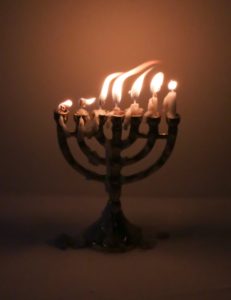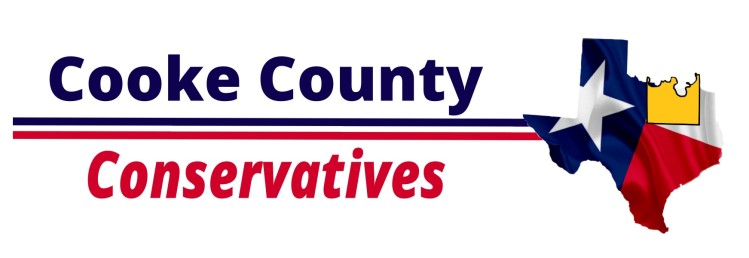
Be Happy About Hanukkah
Happy Hanukkah! You should be happy about Hanukkah even if you aren’t Jewish. This is Thursday, December 2, 2021, the fourth day of Hanukkah (or Chanukah), also called the Festival of Lights. It celebrates a ragtag band of fed-up Jews in 166 BC who “knew their God, were strong, and did exploits” (Daniel 11:32). Through guerilla warfare (think American Revolution), they defeated the Syrian division of the Greek Empire (think British Empire), restored the desecrated Jewish Temple (think religious freedom and God-given rights), and paved the way for the Gospels and Jesus.
If those brave, determined, and greatly outnumbered Jews had not “defeated one of the mightiest armies on Earth, driven the Greeks from the land, reclaimed the Holy Temple in Jerusalem and rededicated it to the service of [God],” [Chabad.org] Jesus would have had no Temple in which to be dedicated, in which to teach and attend Jewish feasts, about which to prophesy. Linus would not be able to quote Luke 2 in a Charlie Brown Christmas.
So, during this Hanukkah and Christmas season, while reading the Gospels, singing Christmas songs, binging on Hallmark movies, and wrapping presents, for Heaven’s sake, thank a Hasmonean.
Who is a Hasmonean?
The Hasmonean family of about 166 BC were descendants of the Jewish High Priesthood. Mattathias was the dad. There were five sons. The leader was appropriately named Judah. They earned the nickname Maccabee which means “hammer.” They would defeat the Syrians and enter Jerusalem in 164 BC.
Almost 900 years after Judah the Hammer and his Maccabees saved Israel, a fellow called Charles the Hammer and his Franks saved Western Civilization from Islam at the Battle of Tours in 732 AD. Enjoying Western Civilization? Thank a Frank. Charles would have a grandson named Charlemagne. Love those Hammers!
Why the Lights? Why the 8 Days?
What finally brought down the hammer? There were a number of issues, but, in 175 BC, Antiochus IV Epiphanes became king of the Syrian/Greek empire. The fancy handle “Epiphanes” (God Manifest) meant he claimed to be God. He made the mistake of looting the Temple to finance his campaigns (think Democrats and RINOS looting American tax money for grandiose schemes). Meanwhile, the Jewish ruling class was up to no good. (D.C.? Austin?) Biblical Archaeology says they were so bad, they rate a reality show.
After a defeat in Egypt, Antiochus IV found Israel in open revolt and made the classic historical move of taking it out on the Jews. Daniel 11:21 calls him “vile.” Biblical Archaeology says he was even worse than Herod the Great, Nero, and Domitian, killing many and brutally enforcing his pagan cultural and religious policies on the Jews. Then he sacrificed pigs in the Temple and set up an idol (probably Zeus) on the altar in the Holy of Holies. In Chapter 11:31, Daniel writes that this foreshadow or type of the Willful King that will come (known popularly as the Antichrist) polluted the sanctuary, took away the daily Jewish sacrifices, and set up the “abomination of desolation.” The hammer came down.
The Miracle of the Oil
Leaving his generals in charge, Antiochus split for the East to fight the Parthians, was defeated, got sick, and died. The Maccabees prevailed and restored Israel’s political and religious freedom.
But the Temple had to be cleansed and dedicated. They threw out the idols (the abomination) and built a new altar and fashioned a new, 7-branched Menorah (7 candles). They found only one, 40-oz jar of still-sealed, ritually pure olive oil. It would only keep the candles burning for one day, and it would take 8 days to make more pure oil to keep the Menorah burning.
That one-day supply of oil burned for 8 days. Oh, that’s just a Jewish folk tale, right? A tale that began an annual 8-day festival of candle lighting that has lasted almost 2,200 years. A festival that Jesus went to the Temple to celebrate almost 200 years later. (John 10:22, Jerusalem, feast of the dedication, winter)
The Miracle of Daniel
Daniel of lion-den fame wrote in the 500s BC, several hundred years prior to the events of the Maccabees and Hanukkah. In Chapter 8, Daniel provides a rundown on the Medo-Persians, Alexander the Great, and our dear friend Antiochus. In Chapter 9, he predicts the coming of the Messiah to the very day. His intelligence source was an intimidating but nice fellow named Gabriel.
In Chapter 10, while Daniel devotes himself to a 21-day marathon prayer session, Gabriel spends the same 21 days battling the “prince of the kingdom of Persia.” This is no human prince. (See Ephesians 6:12) We know for sure because Gabriel calls for help and “one of the chief princes” named Michael (the Archangel) comes to the rescue. Gabriel is also an Archangel. His specialty is communications. Ask Daniel and Mary about that. Anyway, the two wrap up the special op and Gabriel surprises Daniel with another vision and an amazing history lesson.
He continues his history in advance in quite a bit of detail through Chapters 10 and 11. And Hanukkah is part of that “history before it happens.”
Why Has the Hanukkah Celebration Endured?
Rabbi Pinchas Landis considers this question in an article titled, “The History of Hanukkah They Didn’t Teach You in Hebrew School”, featured in FrontPage Magazine on November 29, 2021, and originally at Aish.com. When the time came to act, writes the Rabbi, the Maccabees responded.
They knew they didn’t stand a chance, but they had to send a message to the world that Judaism was worth fighting for, that some Jews still cared, and what was going on was far from okay. In a world of rising anti-Semitism and rampant assimilation, that message cannot die. (Loose quote)
Texas & America Need Their Own Hanukkah
In a world of rising anti-Christianity and rampant assimilation of cultural Marxism, grassroots Texans (and all Americans) need to send a message to Austin, to Washington, and to the world, that our Judeo-Christian foundations, our biblical families, our lives, liberty, and private property are worth fighting for, that Texans still care, and what is going on is far from okay.
This year and every year, we should all celebrate the Maccabees and the Festival of Lights. Happy Hanukkah!





https://rumble.com/vq6321-rabbi-spero-the-important-story-of-hanukkah-applies-more-today-than-almost-.html